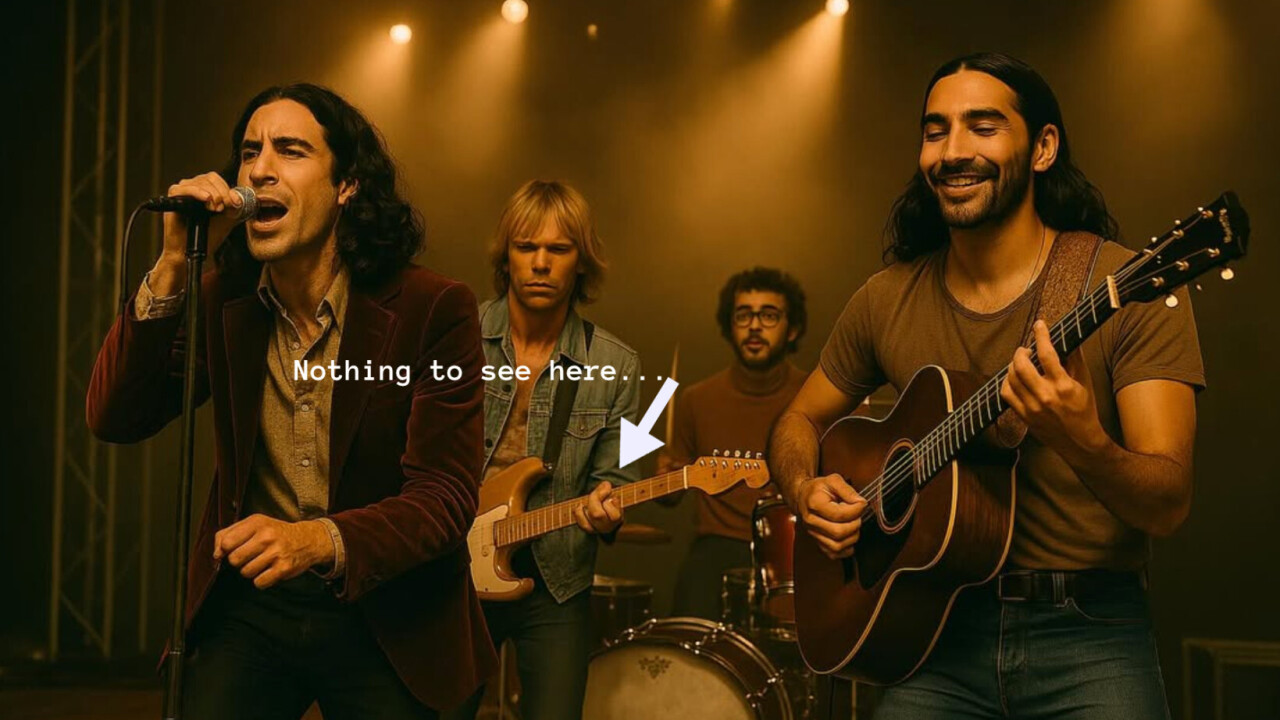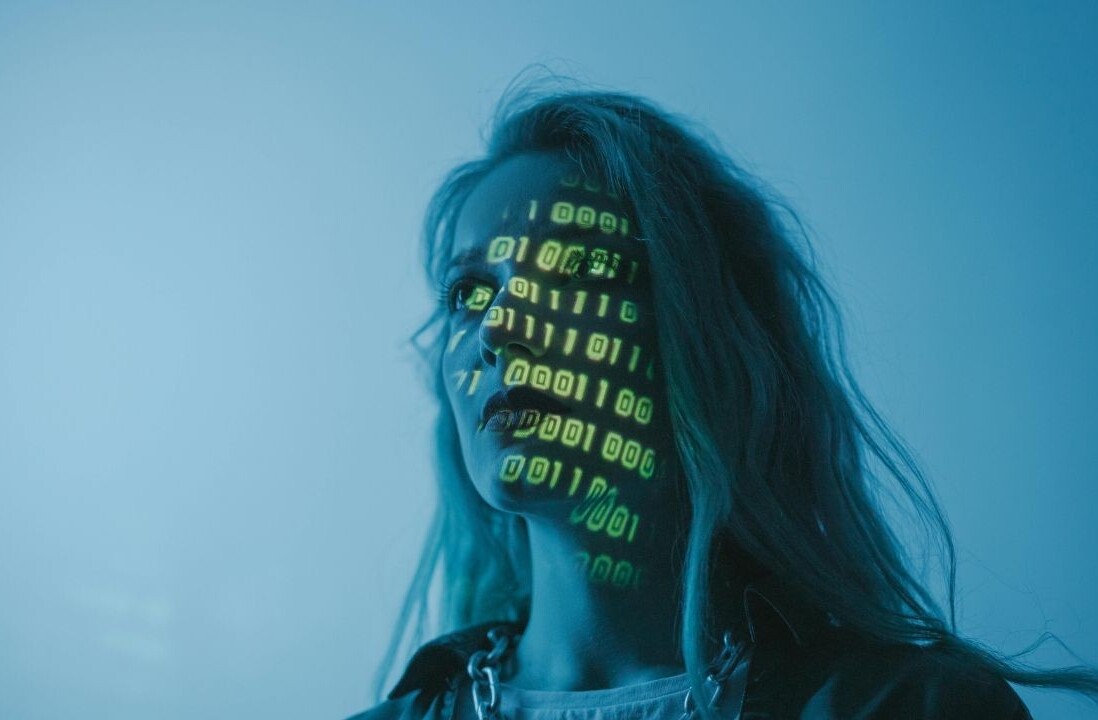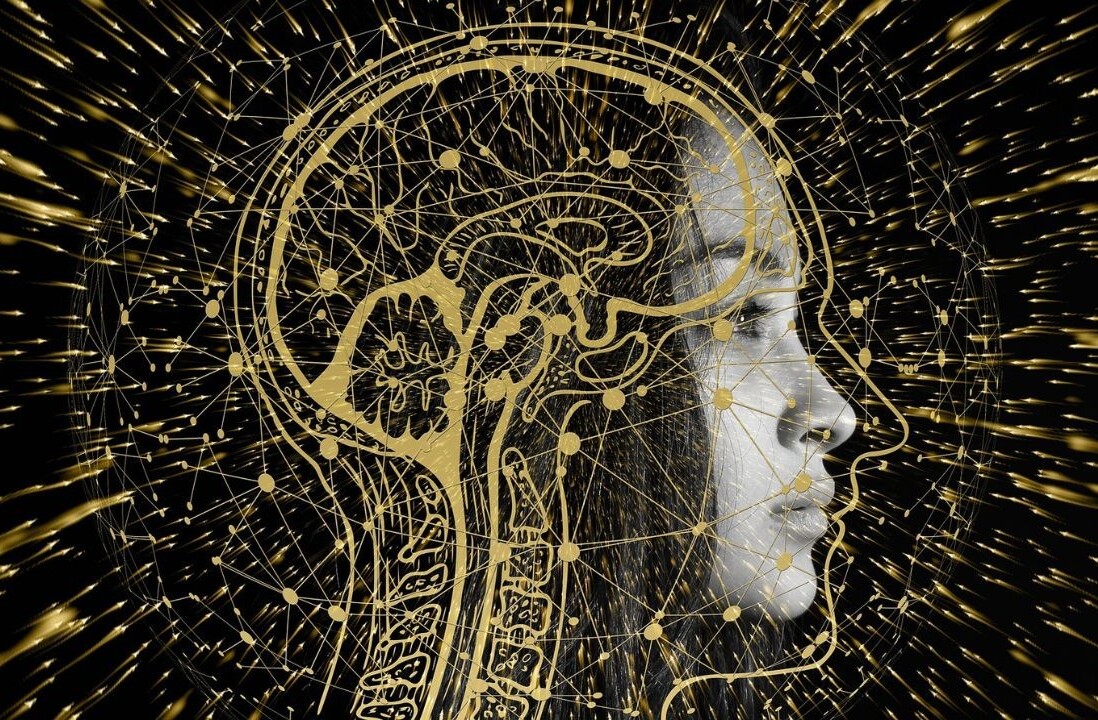
AI slop songs are flooding Spotify — and the latest hit is by an indie rock band called The Velvet Sundown. The track’s success has intensified the ongoing debate on whether or not music streaming sites should label AI-generated songs.
The group has attracted 474,341 monthly listeners on Spotify in under a month. Its top track, “Dust on the Wind” — which sounds similar to the 1977 Kansas hit “Dust in the Wind” — has been played over 380,0006 times since its release on June 20.
The Velvet Sundown was first flagged as potentially AI-generated by Reddit users, who pointed out some suspicious signs.
A profile picture that looks as if it was created by AI. An Instagram account filled with images of band members that look…weird. And a bio with a purported quote from Billboard magazine saying their music sounds like “the memory of something you never lived, and somehow makes it feel real” — a quote that appears to have never actually been published.
There’s also no online trace of the band’s members listed in its Spotify bio: “vocalist and mellotron sorcerer Gabe Farrow, guitarist Lennie West, bassist-synth alchemist Milo Rains, and free-spirited percussionist Orion ‘Rio’ Del Mar.”
Yet, there’s nothing on The Velvet Sundown’s Spotify page to confirm the band is AI-generated. Its tracks even appeared on some Redditors’ “Discover Weekly” playlists, an in-app feature that recommends new songs to users.
The Velvet Sundown is also available on Apple Music and Amazon Music. The only major streaming site where it’s flagged as potentially AI-generated is Deezer.
Earlier this month, Deezer became the first music streaming service to start tagging AI-generated content. Its algorithm can identify artificially created songs made using several popular generative AI models, including Suno and Udio, which turn basic text prompts into “music.”
Over 20,000 fully AI-generated tracks flood Deezer’s platform each day. In April, bot-made audio made up 18% of “total uploaded content” — almost double the 10% figure the company shared in January.
Another popular AI-generated band is The Devil Inside, featured on a recent episode of John Oliver’s Last Week Tonight, titled “AI Slop.”
The Devil Inside’s top track, “Bones in the River,” has racked up 1.6 million listens on Spotify since it was released on May 16. Interestingly, the track has no credited creator under the platform’s “View credits” tab.
However, on Deezer the same song is flagged as AI-generated and credited to László Tamási, a Hungarian musician known for being the drummer of Honky Crew, an electro‑swing band. It represents a rare named credit for an AI-generated artist, who typically remain anonymous. We’ve reached out to Tamási for comment and will update this piece if they reply.
Deezer is an outlier in its offensive on AI-generated music. Spotify has yet to launch any equivalent detector tool. It also hasn’t made any attempts to label such content, at least not publicly. Other music streaming platforms, including Apple Music, Amazon Music, and Tidal, have remained virtually mute on the topic.
It’s perhaps unsurprising that popular music streaming platforms are sitting on their hands. There are currently no regulations on the flow of AI-generated songs, or a consensus on what makes them acceptable or not. Even Deezer is divided.
“AI is not inherently good or bad, but we believe a responsible and transparent approach is key to building trust with our users and the music industry, said Alexis Lanternier, Deezer’s CEO, last week.
“We are also clear in our commitment to safeguarding the rights of artists and songwriters at a time where copyright law is being put into question in favour of training AI models.”.
Last year, a group of US record labels sued Suno and Udio, alleging copyright infringement on a “massive scale.” However, the two companies claim that training their models on copyrighted music falls under “fair use,” a common defence from AI firms.
Get the TNW newsletter
Get the most important tech news in your inbox each week.




